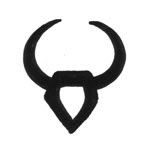In simple terms, overtraining most commonly occurs when exercise bouts are too long, too intense or too close together without adequate rest. The earliest symptom of overtraining is chronic tiredness. Symptoms vary in severity and may be different among individuals. A person's nutritional habits, psychological outlook, and type of exercise routine can influence overtraining. Some of the most commonly reported signs are :
- excessive fatigue
- decrease in performance and lack of results
- psychological staleness, depression/irritability
- changes in resting heart rate (could be increased or decreased)
- decreased immune system & susceptibility to illness
- weight loss
How can we avoid overtraining ?
- Vary the intensity and volume of workouts. Days with long vigorous workouts need to be followed by lighter days or days off.
- Increase the volume or intensity of your workouts gradually. Your body needs time to adapt. Limping around the gym because you really "went after it" the day before. Is NOT gradual and is nothing more than a setback, not progress.
- Get plenty of sleep. Find the right balance in how many hours your body needs to rest. Create a routine that keeps those resting hours as consistent as possible.
- Eat a healthy diet & have balance in your diet. Your body can not recover if you do not give it the nutrients it needs. Be CAREFUL of fad diets that deplete the body of it's needs. Losing weight to fast can be unhealthy and dangerous.
- Hydrate..hydrate..hydrate. Water is essential to the body and is often the most overlooked. As a rule of thumb, your daily water intake should be half your body weight in ounces (not including hydration needs on workout days)
- Listen to your body. If you are tired, there is a reason. Drinking a Red Bull or a large dose of caffeine does more harm than good. Take the time to step back and analyze what factor(s) are causing the tiredness.
References: ACSM Health & Fitness Journal, D. Thomas

No comments:
Post a Comment